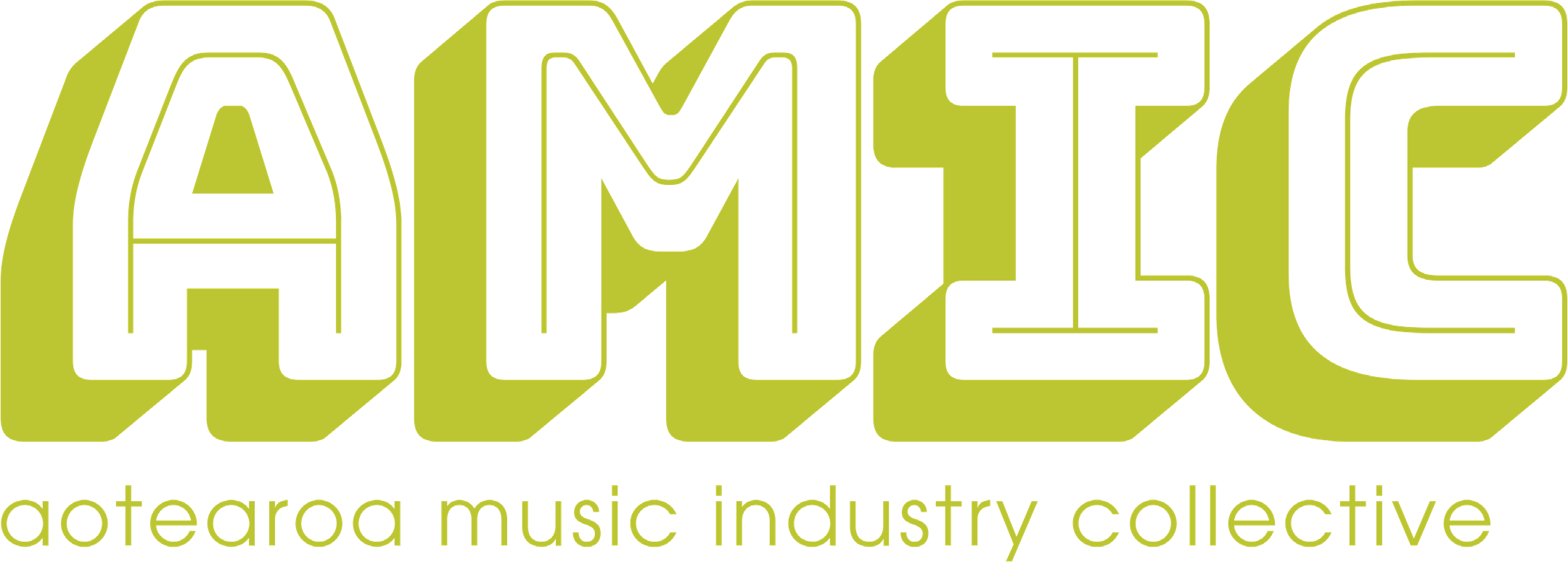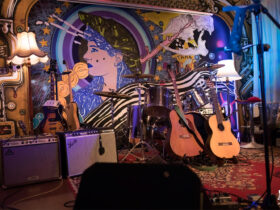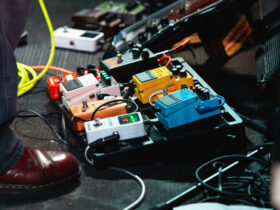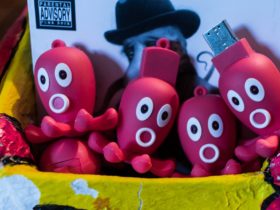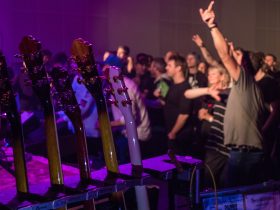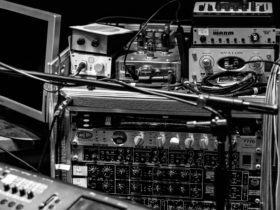Click on the image below to view the full document.
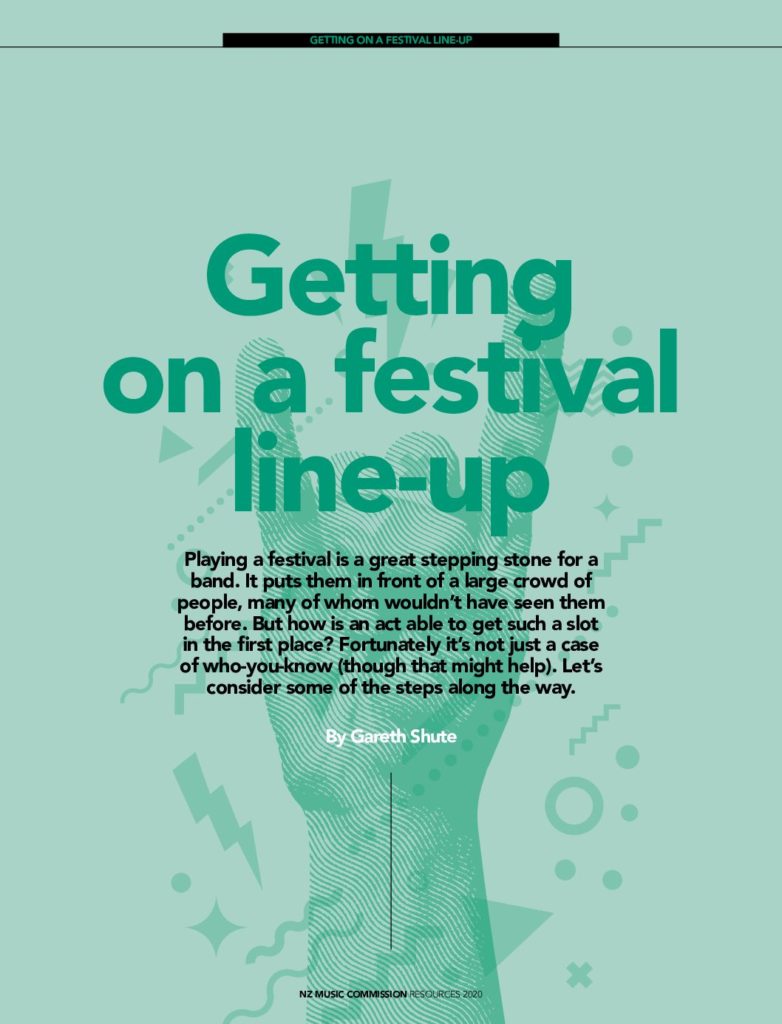
Each New Zealand music festival will have different processes when it comes to booking bands and musicians for their line-ups. Whilst there is no easy one-size-fits-all scenario, the following suggestions may also help when it comes to getting on a festival line-up.
Many thanks to everyone who contributed:
(please note, the above PDF was created by Gareth Shute, these suggestions are from festival promoters and organisers…)
- Get a booking agent, as they would normally be their first port of call for a festival organiser.
- Some festivals (including the Auckland Folk Festival, and CubaDupa etc) open up applications to the public each year. It’s best to keep an eye on festival social pages during the year.
- Get in touch with the festival via the contact details on their website.
- Put on heaps of gigs, release new music consistently throughout the year and promote yourself as much as possible. Festival promoters look out for bands and musicians who promote themselves.
- Play as many gigs as you can. If you’re good people will start talking about your and promoters will hear the talk. Artists get booked because they can deliver a great live show, so it’s not just about releasing music, it’s about putting on a compelling performance. Most bands and musicians that are booked by festival promoters will be working with booking agents.
- Do your research, understand what your music offers and align it with media outlets / radio stations / festivals etc. You should pitch to the places that fit your music. Understanding your music style and building an audience is key.
- Do your best to let promoters know about your music – have good PR and a strong community backing you up.
- Keep in mind that not every festival is the same; some will use festival bookers, others will have online applications and some will even book everything in-house.
- Have a solid product to push (album, EP, single, video etc.), a great EPK (including up-to-date bio) and website. Make it easier for festivals to choose you.
- Some festivals won’t look at you if you haven’t got a certain amount of likes, streams or views etc, as that is an easily viewable insight into how big your fan base is.
- Organisers aren’t usually known for taking a chance on someone they don’t know or haven’t heard of. Seek out and approach bands and musicians that get on festivals and offer to support them on their tours. Tour NZ until you have played everywhere, meet everyone you can, network and build relationships so you have a credible name for yourself.
- If you get the chance, don’t blow it. Be helpful, humble and happy to be there, and keep it professional. Make sure your gear and instruments are ready to go, pretend like it’s the biggest show you’ll ever play, and do your best to put on a great show. All of this will ensure your chances of being asked back the following year, or to be asked to perform at other festivals.
- Starting small can pay off later on – don’t overlook smaller festivals as these could be your stepping stones towards larger festivals.
- If the opportunity comes up to apply to be on a festival line-up, apply early rather than late and don’t miss the deadline. Add important dates to your calendar so the opportunity doesn’t pass you by.
- Non-profit festivals will be good exposure for your music. While not receiving compensation, it’s still a live performance experience opportunity.
- You don’t need to be overwhelmingly successful, but you do need to be able to show some recent success. Success being measured by the wider response to your work in the market and/or relative profile in your genre. A lot of different aspects make up this kind of analysis such as radio play, Spotify numbers, social profile and more importantly, how you perform live.
- Having a great public profile is equally as important to the art in the music business. Six60’s rise is a great example of how powerful a profile can be when done right. Yes, they had a lot of musical success but if you dig through everything, you’ll see evidence that their success is equally matched by incredible marketing strategies.
